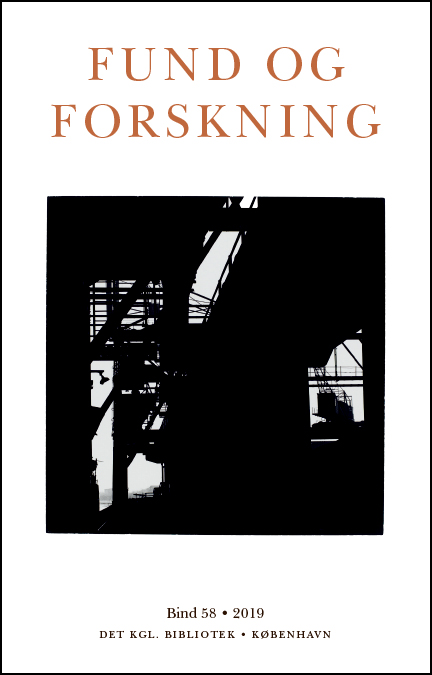Danske forfatterarkiver og dialogen mellem lokalitet, samling, registrering og forskning
DOI:
https://doi.org/10.7146/fof.v58i0.125299Resumé
Lotte Thyrring Andersen: Danish Author Archives and the Dialogue between Location, Collection, Cataloguing and Research
This article concerns Danish author archives and the dialogue between location, collection, cataloguing and research. The starting point of the article is my longstanding work with author archives that have not been submitted to the Royal Danish Library in Copenhagen: The Thøger Larsen Collection at Lemvig Museum, Peter Seeberg’s archive at Hald Hovedgaard and Jens Kruuse’s archive at the Royal Danish Library in Aarhus. The focus of the presentation is aspects of my research and collection experience, and some of the research in which I have been engaged. The article examines the significance of the location of an author archive and the understanding of a body of work, based on the Thøger Larsen Collection at Lemvig Museum. It also examines the relationship between collection, cataloguing and research on the basis of Peter Seeberg’s archive, where the experience gathered concerning the cataloguing of a specific author archive is examined in order to shed light on the practical nature of the work and the research opportunities that cataloguing can present. Finally, the article examines the literary history perspectives that can be derived from the use of author archives, and the potential significance of researcher networks and focus areas for the use of archives. On the basis of Jens Kruuse’s archive at the Royal Danish Library in Aarhus, the article shows that letters can be included as specific voices that contradict, expand on, sharpen and refine the generally accepted and adopted ideas about certain authors and their role in society. New lines of connection emerge, and the view of the period changes and is enriched. Research thus stimulates interest in an author’s archive by utilising the collection’s knowledge and acknowledgements in new representations and perceptions of the author. At the same time, the author archive contributes materials that promote research and the publications within an area. This presupposes that the archive is well-organised and catalogued, to ensure simple and easy access for the user.


